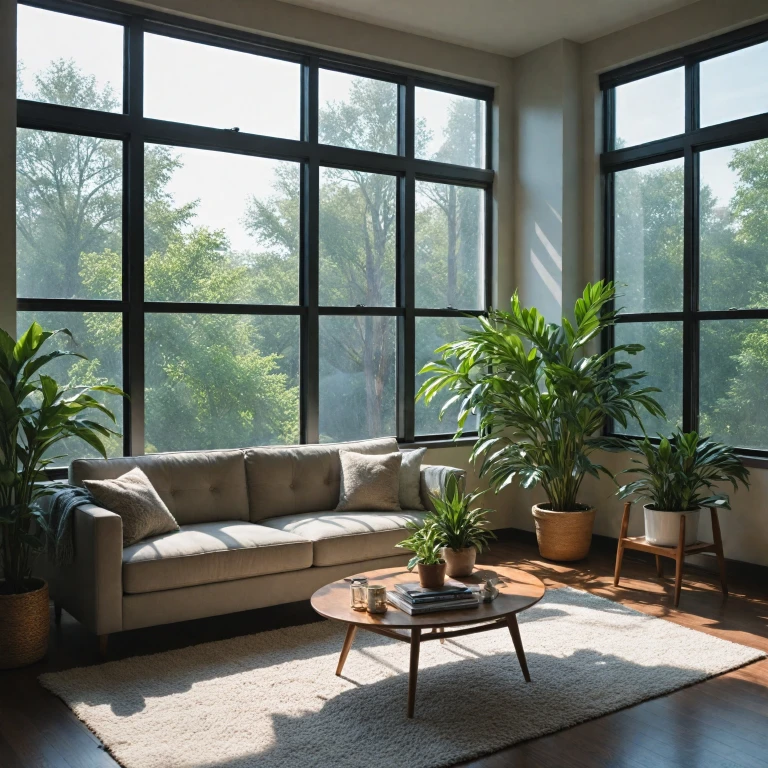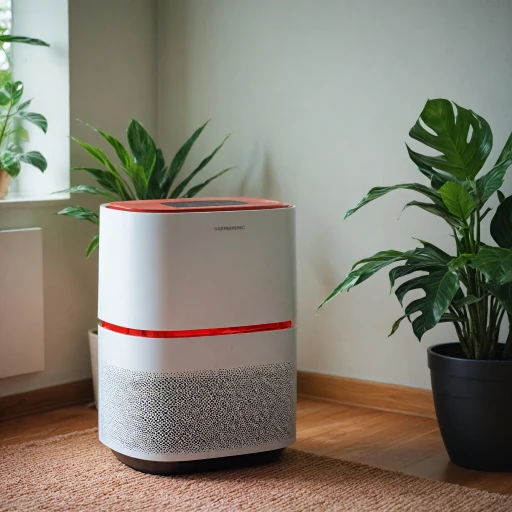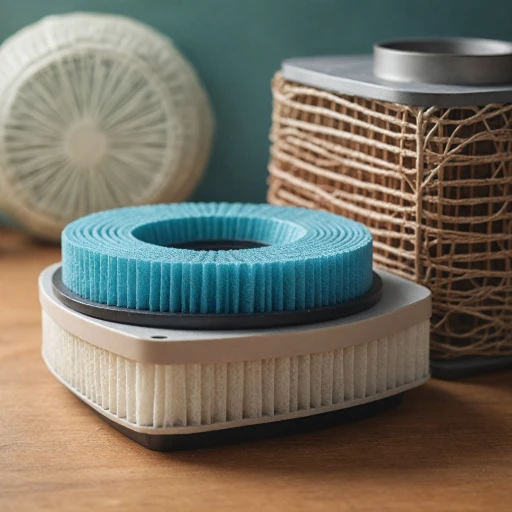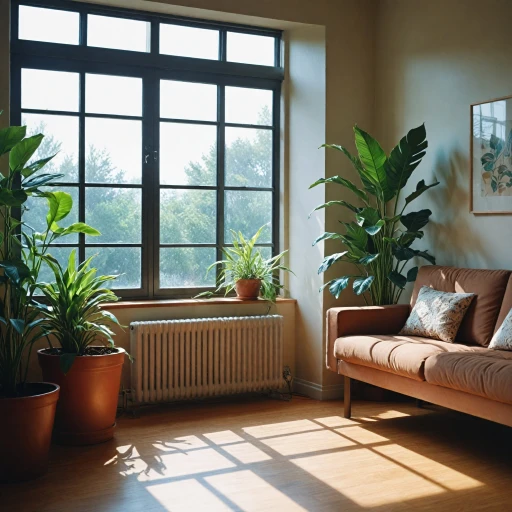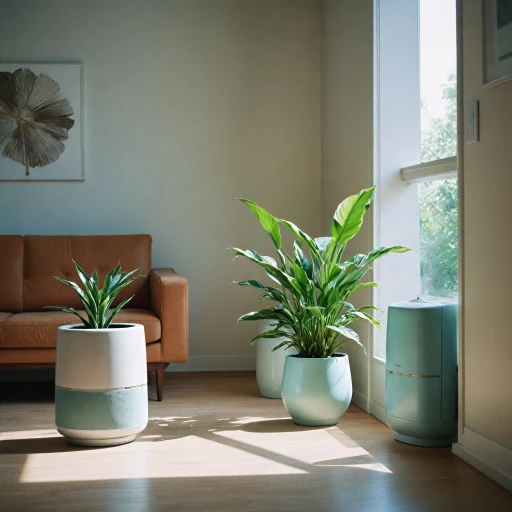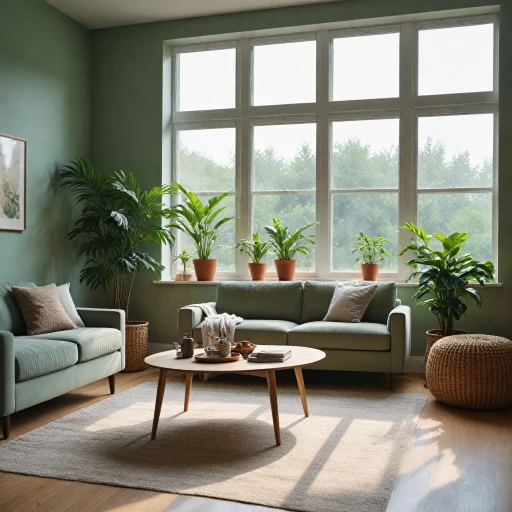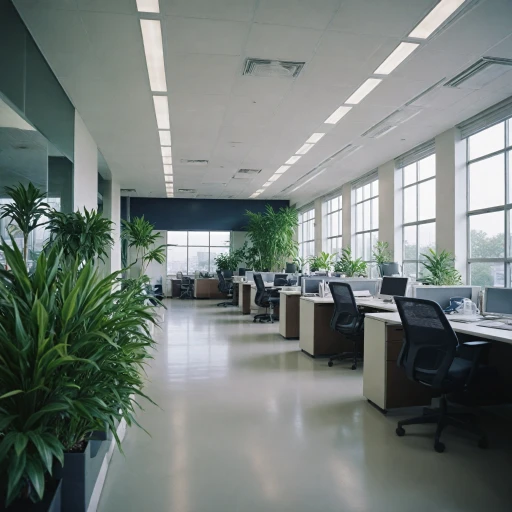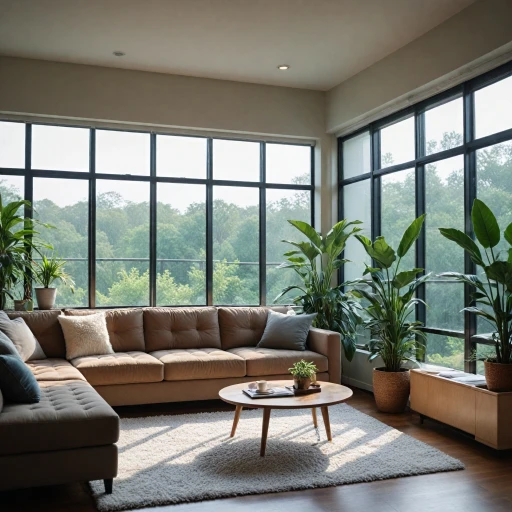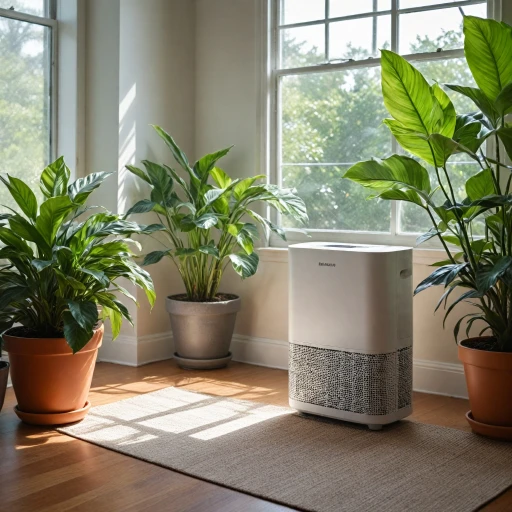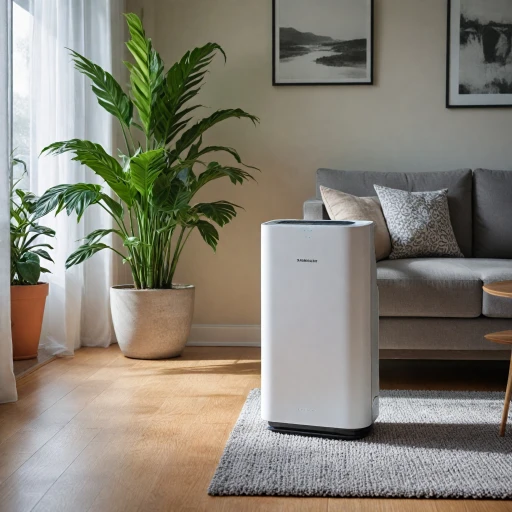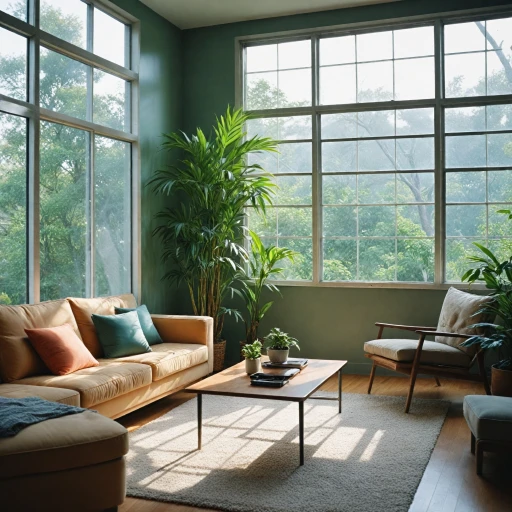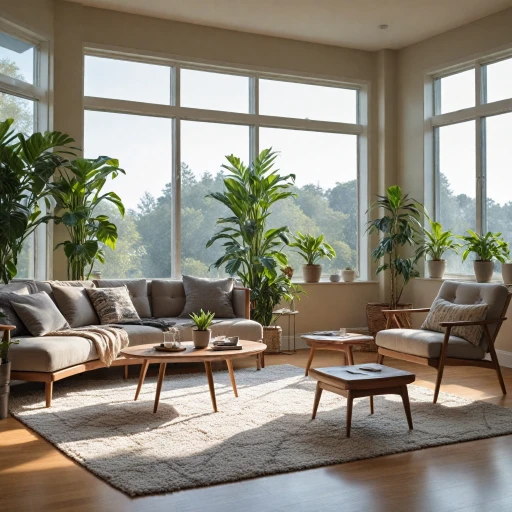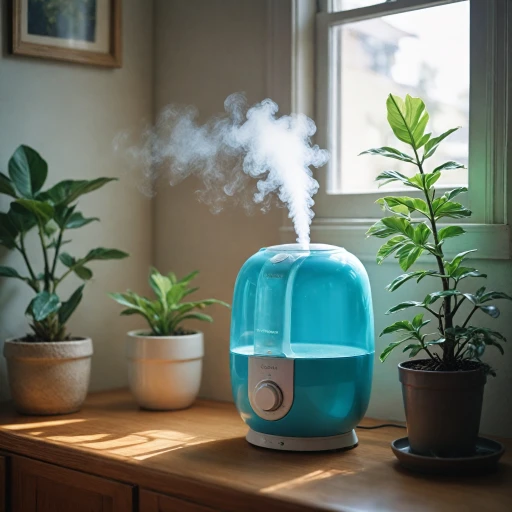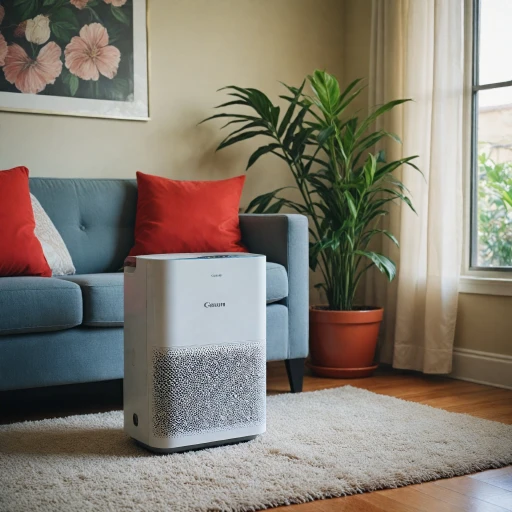
The Basics of HVAC Air Purification Systems
The Functionality Behind HVAC Air Purification Systems
Understanding how HVAC air purification systems work is essential for anyone looking to enhance indoor air quality. These systems are integrated with your central HVAC system to ensure that every corner of your house benefits from cleaner air. Unlike portable air purifiers, HVAC systems offer comprehensive coverage, targeting various pollutants and particles that often compromise air quality.
At the core of these systems is the air filter. The filter is responsible for trapping airborne contaminants, ranging from dust and pollen to mold spores and bacteria. Most HVAC systems utilize high-efficiency particulate air (HEPA) filters capable of capturing up to 99.97% of particles as small as 0.3 microns. This filtration process not only improves house air but also contributes to a healthier living environment by reducing the presence of allergens and irritants.
To further boost the efficacy, some systems incorporate additional technologies such as UV light, which can neutralize bacteria and viruses, and activated carbon filters that remove odors and volatile organic compounds (VOCs). This multi-layered approach ensures thorough air purification and enhances the overall air quality within a space.
For more detailed insights into air purifier filters and their effectiveness in enhancing indoor air quality, consider exploring more about Holmes air purifier filters.
Key Components of an HVAC Air Purification System
Exploring Key Elements for Optimal Performance
In any HVAC air purification system, the combination of components plays a vital role in enhancing air quality. Here, we'll explore the critical elements that come together to create a cleaner and more efficient environment.The Role of Filters
Central to any effective air purification system is the air filter. These filters are designed to capture particles and pollutants, ensuring cleaner air circulates throughout your house. Various types of filters are employed in HVAC systems, including HEPA filters, which are renowned for their high-efficiency filtration capabilities, and carbon filters known for tackling odors and gaseous pollutants.Advanced Purification Technologies
Beyond filters, many systems incorporate advanced purification technologies such as UV light purifiers, which target and neutralize pathogens, thereby adding another layer of protection. Additionally, ionization purifiers work by charging particles to easily capture them within the system more efficiently.Integration with Existing HVAC System
An essential aspect of HVAC air purification is its seamless integration with your existing HVAC system. Many purification systems are designed to work in tandem with central air and heating systems, allowing for effective air filtration without the need for standalone or portable air purifiers.Considerations for Maximum Efficiency
Achieving maximum efficiency requires careful attention to the purification systems you choose. Regular maintenance, including timely replacement of hvac filters, ensures sustained performance and longevity of the system. Keeping your system in peak condition aids in maintaining consistent clean air flow throughout your home, enhancing overall indoor air quality. The combination of these key components varies among different systems, each offering unique advantages, which calls for a tailored approach to selection, installation, and maintenance to meet personal and environmental needs.Benefits of Using an HVAC Air Purification System
Enhancing Indoor Environments
Utilizing an HVAC air purification system offers a myriad of benefits, significantly boosting the quality of air in your indoor spaces. Whether you're looking to improve air quality in an office building or your own home, these systems play a pivotal role in ensuring cleaner, healthier air.- Efficient Particle Removal: The system effectively captures and removes particles, including dust, pollen, and other pollutants, from the air. This results in cleaner air circulating throughout the building.
- Reduces Allergens and Irritants: By removing common allergens and irritants, HVAC air purification systems create a more comfortable environment for individuals suffering from allergies or respiratory issues.
- Consistent Air Quality: Unlike portable air purifiers, which only cover limited areas, these systems provide consistent air purification across all rooms connected to the central HVAC system.
- Energy Efficiency: These systems can be more energy-efficient as they are integrated into existing HVAC systems, which can result in lower overall energy consumption compared to operating multiple standalone air purifiers.
- Enhanced HVAC Efficiency: By reducing airborne particles that could potentially clog HVAC filters, the overall efficiency and lifespan of your HVAC system are improved.
Challenges in Implementing HVAC Air Purification Systems
Implementation Obstacles and Solutions
While HVAC air purification systems offer comprehensive solutions for improving indoor air quality, there are certain challenges you might face when integrating these systems into your home or building. Awareness of these challenges and potential ways to overcome them will help ensure you make informed decisions.
One common issue is the initial cost of installation. Quality HVAC systems with advanced purification features can be an investment. However, financing options or phased installations can alleviate the financial burden.
Maintenance is another critical aspect to consider. Regular upkeep, such as changing filters and inspecting system components, is essential for maintaining efficiency. This can require time and effort, but scheduling regular professional maintenance can ensure your system functions optimally and extends its lifespan.
Space constraints might also be a concern for some buildings. HVAC systems are larger than portable air cleaners, necessitating sufficient space for installation. If your residence has limited space, you may need to consider custom solutions.
Adjusting to new technologies can be an educational curve. Understanding various system settings and controls may require additional learning. However, most modern systems come with user-friendly interfaces and clear instructions to ease this transition.
The integration of HVAC purifiers with existing systems might require additional infrastructure adjustments, potentially affecting central air performance. Consulting with HVAC professionals will ensure compatibility and seamless integration with your current setup.
By acknowledging these potential obstacles, you can plan effectively and enjoy the long-term benefits of cleaner indoor air through HVAC air purification systems.
Comparing HVAC Air Purification Systems to Standalone Air Purifiers
Comparing Efficiency and Practicality
When it comes to maintaining optimal indoor air quality, both HVAC air purification systems and standalone air purifiers have their respective advantages. Understanding their differences can help you make an informed decision for your indoor space. HVAC air purification systems are integrated into your existing heating and cooling system, allowing them to purify the air throughout the entire house. This makes them efficient for whole-home air quality improvement. They use advanced air filters that capture a variety of pollutants and allergens, providing cleaner air across all rooms. Standalone air purifiers, on the other hand, are portable and can be moved to target specific areas within the home. However, their reach is limited to smaller spaces and may require multiple units for broader coverage. Central air HVAC systems are often more effective in removing pollutants due to their comprehensive design and high-efficiency filters. They can capture microscopic particles that standalone air cleaners might miss, leading to an overall improvement in air quality. Yet, maintaining these systems can be more involved, requiring regular HVAC filter replacements and potential upgrades. In terms of costs, investing in an HVAC purification system might seem like a significant initial expense, but it can be more cost-effective in the long run due to its extended coverage and integration with existing systems. Portable air cleaners, while cheaper upfront, might end up requiring several units to achieve similar results in a large house, adding to operational costs over time. Each system caters to different needs—where HVAC systems provide comprehensive coverage, portable systems offer flexibility and targeted purification. Your choice should align with your specific air quality goals, the size of your indoor environment, and your budget. So, whether you're seeking cleaner air for health reasons or just looking to breathe easier, both systems hold distinct benefits that can be tailored to your lifestyle.Choosing the Right HVAC Air Purification System for Your Needs
Factors to Consider When Selecting an HVAC Air Purification System
When it comes to choosing the right HVAC air purification system for your home, several factors must be taken into account to ensure optimal indoor air quality. Here’s a breakdown of what you should consider:
- Room Size and Coverage: Consider the size of your house and the specific areas where you need air purification. Central air systems are ideal for larger spaces, while standalone or portable air purifiers might suit smaller rooms or targeted areas.
- Type of Pollutants: Identify the contaminants present in your indoor air. Different purification systems and filters are designed to tackle different particles, such as dust, pollen, bacteria, or smoke.
- Efficiency and Filtration Technology: Check the efficiency of HVAC filters and purification systems. High-efficiency particulate air (HEPA) filters, for example, are highly effective in trapping fine particles. Some systems offer advanced filtration, ensuring thorough clean air.
- Integration with Existing HVAC System: Determine whether the air purifier integrates seamlessly with your current HVAC system. Compatibility issues can affect the overall performance and require additional modifications.
- Maintenance and Filter Replacement: Understand the maintenance needs, including the frequency of changing filters. Regular maintenance ensures the system continues to operate efficiently and maintains high indoor air quality.
- Costs: Evaluate both upfront and ongoing costs, including installation, energy consumption, and maintenance expenses. While HVAC systems can be an investment, they often offer long-term benefits.
- Noise Level: If noise is a concern, opt for systems that offer quieter operation while maintaining purification capabilities.
Selecting the right air purification system is crucial for maintaining a clean and healthy indoor environment. Assess your needs carefully and consider consulting professionals to ensure you choose a system that effectively enhances your indoor air quality.

